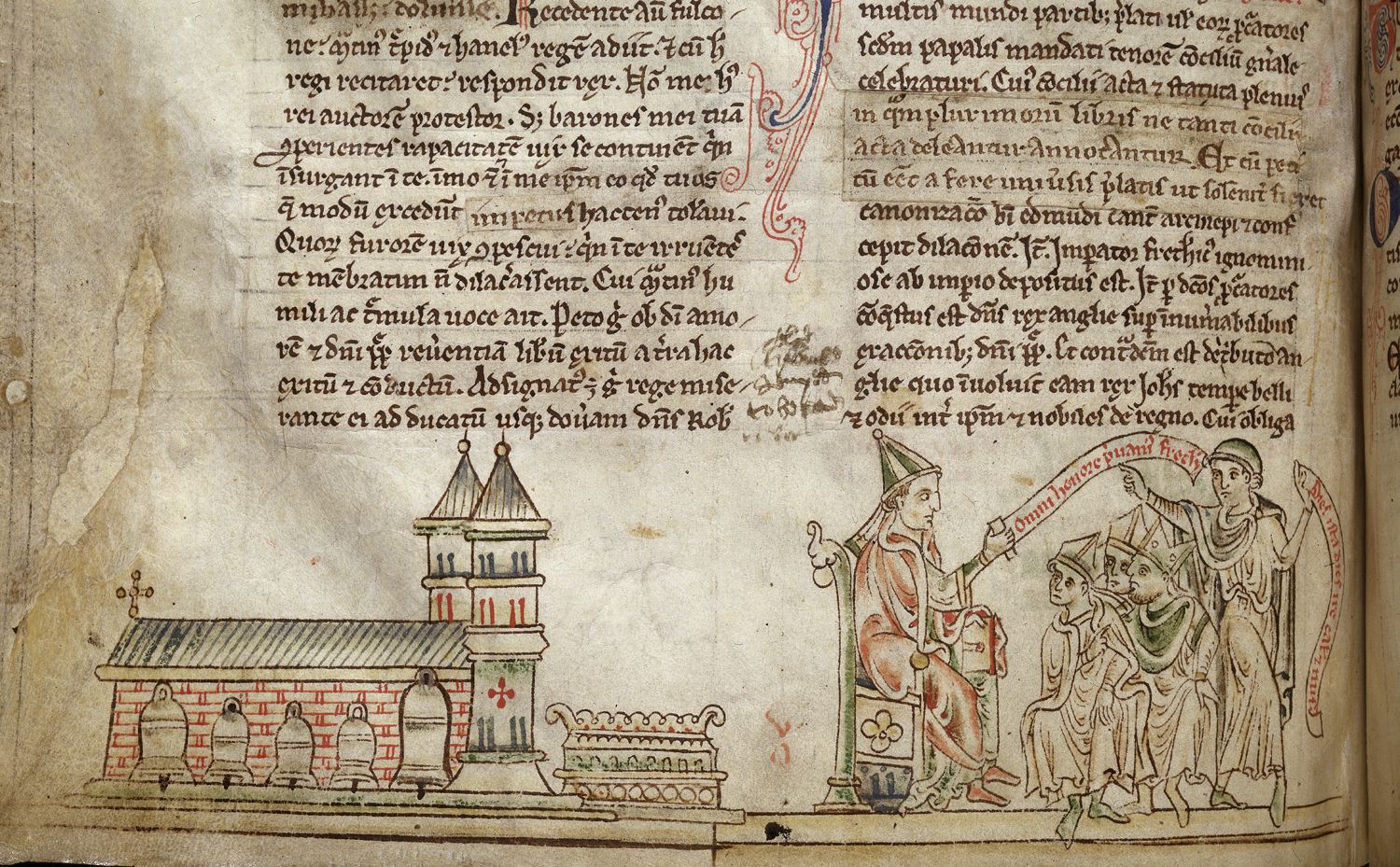I want to wish you all a happy and blessed new year! I will offer more tomorrow, but tonight I am going to play with my family at the First Night Festivities in State College. In the meantime, here is my homily from this afternoon’s service. (Warning, this is a rough cut.)
31 December 2007
The Feast of the Holy Name
Numbers 6:22-27
Psalm 8
Galatians 4:4-7
Luke 2:15-21
What’s in a name? (Or, God’s name is Howard. You know, “Our father, who art in heaven Howard be thy name.”)
My name is Christian Mark McNamara Brady. My first name is in honor of a German uncle whom I, and my parents, never knew. I was named “Mark” after the Evangelist and because they liked the sound of the name. I added “McNamara” to my name after my maternal grandfather, Bill McNamara, died. There were no males to carry on the name and so it continues in my name.
Have you thought about your name very much? If you have children I bet you thought a lot about what you were going to name them. I certainly did. As a Brady growing up during the 70’s I heard all sorts of playground taunts involving a certain show that was popular at the time. And those were the kind things they said! For every name that Elizabeth suggested for our children I would throw back a potentially devastating nick-name. It wasn’t a decisive test, but it is important to think of these things before placing upon a child a moniker that will remain with them for their life (you hope).
Our first reading tonight describes the benediction that Aaron is to invoke over all Israel so that God’s name shall be upon the Israelites. God’s name, written in our English texts as Lord, with all capital or small capital letters, conceals the Hebrew name, often pronounced Yahweh. It is an odd sounding name to us, to be sure, but it is has powerful meaning. You may recall the scene at the burning bush, where Moses asks God to tell him what his name is so that when he goes back to Egypt and the Israelite elders ask for proof that it is indeed their God who has spoken to him, he will be able to utter the very name of God. It is a sort of password, if you will.
14 God said to Moses, “I AM WHO I AM.” He said further, “Thus you shall say to the Israelites, ‘I AM has sent me to you.’” 15 God also said to Moses, “Thus you shall say to the Israelites, ‘The LORD, the God of your ancestors, the God of Abraham, the God of Isaac, and the God of Jacob, has sent me to you’:
This is my name forever,
and this my title for all generations.
Again I have to share a bit of Hebrew (we will have a lot of that tonight). The English “I am Who I am” is, in Hebrew the אהיה אשר אהיה this is the first person singular of the verb “to be.” And notice how God changes how it is that Moses is to refer to him in the next verse. “Thus you shall say to the Israelites, ‘The Lord, the God of your ancestors.…’” The Lord is, in Hebrew יהוה, the third person masculine of the verb “to be.” In other words, God’s name is nothing more or less than the verb of existence. Only God can ever say אהיה, “I Am” since only God IS. We must refer to him as יהוה, “He Is.”
But consider what this name means. God is the essence of all existence. He IS, past present, and future, is God. All things exist through him, in him, and by him. I cannot possibly do justice to this concept, in over a decade of lecturing on this I never have, but I urge you to contemplate what this might mean, that God IS.
Consider also the way in which God further defines himself for Moses and the Israelites. He is “the God of your ancestors, the God of Abraham, the God of Isaac, and the God of Jacob.” This God is a god of history and a good who intervenes in history, stooping down and meeting with his people, delivering them from the famines of Canaan, the slavery of Egypt, the bondage of Exile, and the burden of sin. God is the primary agent of all history, of all being. He is not an aloof abstract concept, he is the essence of Israel’s past, present, and future.
Tonight is New Year’s Eve and here in State College we have the wonderful tradition of First Night, but in this service we also remember an important moment in the life of baby Jesus, his circumcision and naming. Luke tells us that Joseph and Mary followed the command that God had given to Abraham well over a thousand years earlier that all males who were of Abraham’s descendants should be circumcised as a sign of the promise that God had made to Abraham that God would never leave him and that Abraham’s descendants should be innumerable, and a blessing to all nations. Jesus was not only fulfilling the law, but his circumcision also represented a culmination of it since it was in him that God’s promise to Abraham all those centuries earlier, were to be fulfilled. He would shed his blood another, final time to be a blessing and the salvation of all the nations.
At the same time it was also tradition to then give the child the name by which they would be called. This is why this service is called the Feast of the Holy Name (which is a bit nicer than the Feast of the Circumcision, which it is also). You will recall that the angel Gabriel had told Mary, prior to her conception, that this child she would bear would be named “Jesus.” This is the Greek form of the Hebrew name Joshua or יהשוע, means “Yahweh [the Lord] will save.” Needless to say, the choice of the name of the Messiah was not arbitrary and all though it was an incredibly common name of the time, the biblical figure of Joshua who led the conquest of the land of Canaan was extremely popular, this name is not merely a handle or a reference to a person, it serves to identify him as well. This child born of Mary and descended from Abraham, is Yahweh, the Lord incarnate who will save the world.
Those who eventually followed this child would at first be called followers of “the Way,” since they followed the Way of the Lord, the path of obedience to God lived out by Jesus. This name, although short-lived, is also prescient and can serve as a point of reflection. It reminds us that following Jesus is just that, following, a journey, a physical emulation of how he lived his life, following the paths that he chose. It is, after the cusp of the new year, consider what path you will follow in the year to come, etc.
We are now called “Christians,” a name that means followers of Christ. It denotes the same characteristics and traits as the term “the Way” but places the focus rightly upon the person of Christ rather than upon a particular habit or philosophy.
Within the first century their were some in the Roman world who mistook the title “Jesus Christ” as a name, with “Christ” being the last name, as it were. In many ways this error is not inappropriate. Paul, in his letter we read tonight, reminds us that we have been adopted as members of Jesus’ family. We too may now call the Lord our God Abba, Father. And we too inherit in his eternal kingdom. Truly, Jesus, Joshua, Yahweh has saved the world.
As I mentioned, my first name is Christian and given that my field is Jewish Studies I have at times received questions regarding my lineage. Most assume that I am Jewish, but the phrasing of the question that stands out to me most is from the adjunct instructor who, upon first meeting at Tulane and after telling her about my research, said, “What is a nice Jewish boy like you doing with a name like Christian?” She meant the question as a compliment and I took it as such. But it has served as a real and genuine challenge to me, as I think it should to us all.
What are we doing with a name like Christian?



